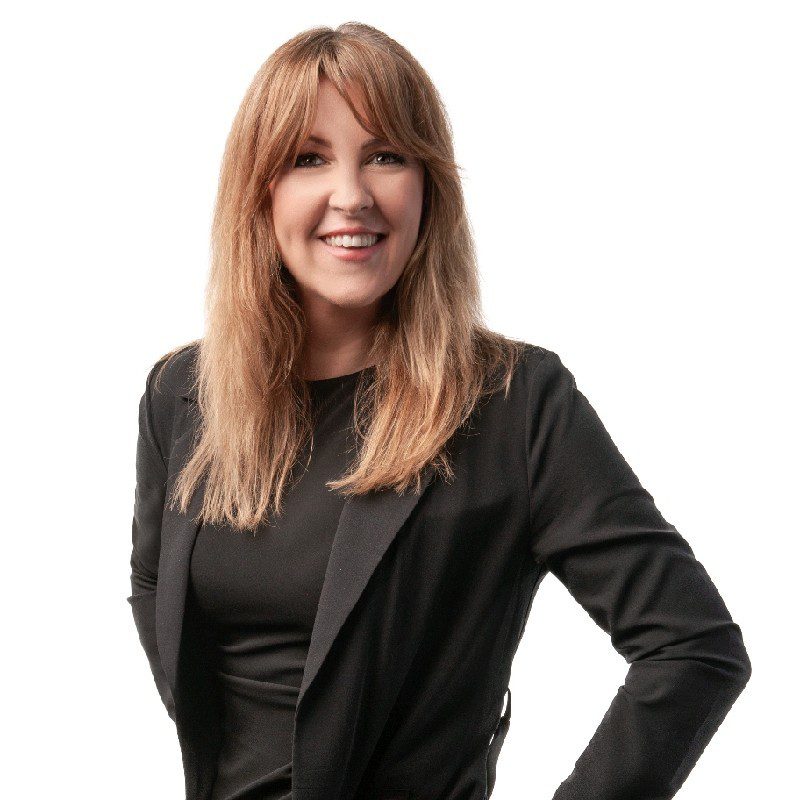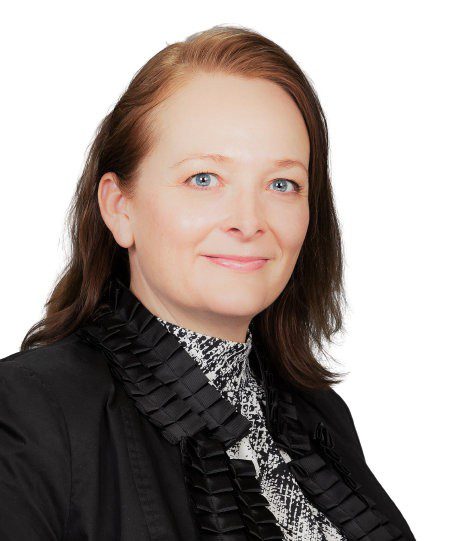In January 2022, Siska Concannon launched a unique company in the gaming industry space. Affiliated Sports Fans is an engagement solution for gambling and sports industries — a way to foster acquisition and relationship marketing between potential customers – think sports clubs for soccer, golf, or basketball — and brands such as sportsbooks.
It’s a niche that no one in the gaming industry, it seems, is currently pursuing. And it’s also unique in that Concannon is one of the few women running a gaming company.
The lack of women entrepreneurs in gaming-related businesses puzzles Cassie Stratford, president and chair of the advocacy group Global Gaming Women, and vice president of Affairs and Assistant General Counsel for Boyd Gaming Corporation.
“I feel like every time I feel good about there being some progress and you look at another area, it’s like gosh, we’re way behind over here,” Stratford says. ” …I think that’s something we as an industry probably need to start taking a hard look at ourselves and ask ‘why?’. Is it opportunity, or is it that people are more reticent to trust a version of someone who doesn’t look like your typical casino executive?”
There are more women serving in board rooms and as CEOs. And women comprise a little more than half of all gaming industry employees, according to an ABC News report in October 2021
But the number of female entrepreneurs who launch their own companies are few. Anna Sainsbury was one of the first women to start a company in the space, co-founding GeoComply ten years ago. A provider of fraud prevention and cybersecurity solutions through geolocation technology, GeoComply has proven to be one of the most trusted brands in that segment.
Sainsbury, currently GeoComply’s CEO, thinks the dearth of women gaming industry entrepreneurs reflects a similar deficit in product and engineering fields, “making it more challenging to have 50% male-to-female split with regard to tech entrepreneurship,” she said via email.
“As a society, we are still in the foundational moments of implementing diversity across all divisions/departments in a company,” Sainsbury wrote. “This is unfortunate but true. It is a focus for many organizations in our industry, but it takes time for women to be onboarded into our industry and take leadership roles at a CEO level. This is particularly challenging when our industry is growing so fast and other tech industries that are fighting for the same talent are also looking to acquire the same talent. We need to focus on bringing talent from other sectors.”
According to Concannon, the lack of women executives and entrepreneurs may eventually harm to the industry. When she started in gaming seven years, there were but a handful of women executives and fewer business owners. At meetings she was often the only woman present.
“And yet our customers were far more diverse than this,” Concannon says. “This struck me as a huge issue. If decisions made on product, marketing, language, and brand were being made exclusively by a representation of only one sector of our customer base, how can we possibly create an environment that speaks to all our customers and potential customers? The answer is, and it’s proven, that you can’t.”
When women establish companies, they often are successful. Sara Slane launched a consulting firm three years ago after working for MGM and the American Gaming Association. Sara Slane Advisory has since become one of the most respected voices in the industry. Brianne Doura-Schawohl, in less than a year, has established Doura-Schawohl Consulting as an important source for ideas and solutions about problem gambling.
Stratford knows plenty of women who have served as mentors and allies during her career. But she’s hard pressed to name more than a handful of women who have become successful business owners.
“When you listen to people, they’re talking about early days or what drove them to do it or what drove them to succeed,” Stratford says. “And of course, there’s always a lot of doubt. But having examples of people who have (succeeded), I think it’s really confidence building. And a lack of those examples in problematic.”
Jennifer Gaynor was working for a law firm in Las Vegas when the pandemic shut down businesses in 2020. She gradually adjusted to working from home but Gaynor didn’t want to return to the office when restrictions eased. Instead, she established J. Gaynor Law in September, 2020, a boutique firm specializing in gaming, liquor, and business licensing, with an emphasis on regulatory compliance in Nevada.
“In the middle of the pandemic it was time to take the leap, and I wonder if that’s true for other women who did the same thing,” Gaynor says. “Sometimes in a time of crisis where you’re forced into change, it makes you take a look at everything in a new way.”
Gaynor says it’s been “surprisingly easy” to attract clients – “I am truly busier than I was when I worked at the firm.” Being located in Las Vegas and Clark County, where there is a constant stream of new businesses requiring gaming and liquor licenses, has helped.
Gaynor has made a few adjustments, starting with the name of her firm.
“I don’t recall specifically wanting to have a unisex or ambiguous name, but I did think (J. Gaynor Law) sounded `more professional’ than `Jennifer Gaynor Law,'” she says. “When I think about it, I probably did choose to go that way with the name on some level because it was just that: ambiguous.”
As the author of That (Expletive) Broad: Women Who Broke Barriers in the Casino and Gaming Industry (New Degree Press), Gaynor has a keen sense of the history of women in the gaming industry and the barriers they had to overcome. Gaynor herself experienced incidents where she was ignored during meetings or thought to be a paralegal instead of a lawyer.
She admits attitudes have changed, especially in terms of companies being proactive in making sure women have opportunities. Gaynor cites initiatives by MGM and Caesars that help develop “women ready to enter the C-suite.”
While Gaynor recognizes she is unique as a woman running a company, her gender does have some advantages.
“I’ve had at least two or three female clients tell me they were excited to get to work with me because they like supporting other women,” Gaynor says. “But it’s clear there’s still work to be done.”
During the 2019 NBA Playoffs, Kelly Brooks was running a successful company that developed mobile phone technology in Toronto, Ontario. On a whim, her team developed an uncannily accurate prediction algorithm using artificial intelligence for Toronto Raptors’ games.
After consulting peers including SBC Americas Vice President Growth & Strategy Sue Schneider, Brooks shut down her former company and launched Quarter4, a B2B venture that provides advanced insights for the NBA, NFL, NHL, and college football and basketball, and notably features information for women’s leagues and sports.
When Brooks and her team pitched the concept at gaming conferences, the reaction to Quarter4 was immediate.
“We were embraced,” Brooks says. “They were saying ‘Where have you been?’ The industry needs change, it needs women, and it needs technology. And they really helped guide us on where this product could fit.”
The transition for Brooks from tech executive to gaming entrepreneur was seamless. But she noticed that, like tech, gaming was a male-dominated space. The subject matter in both industries, “whether it’s professional sports, fantasy gaming or artificial intelligence, the players, fans and scientists, has been very weighted to one side,” Brooks notes.
As the gaming industry undergoes a technical revolution, as tech executives and gaming professionals increasingly share the same space with predominately male investors, one factor remains constant.
“Female leadership is rare,” Brooks says. “I have seen change, though. In the last three years the conversation and push for diversity is becoming a theme. Exclusive to betting, women’s sport needs to be normalized. This means that the data and content have to appear alongside other user experiences. At Quarter4, we ensured that we were one of the first AI companies to present predictive analytics for women’s sport. This empowers our customers to create experiences that deliver equal opportunity content.”
Stratford says Global Gaming Women will continue to provide resources for women seeking to advance in the industry. And perhaps the best way to achieve equity is to promote women who have been successful, share their stories, and let budding entrepreneurs know there is a path to success.
“I think there’s something really powerful about being around other people that you can identify with and perhaps brainstorm with or feel comfortable asking serious questions, or just be inspired by,” Stratford says. “The more I’m around people that I respect and admire, the more it motivates me to do my best and sort of believe in myself and what I can do.
“I think that is really powerful for women. We need more who are brave enough to take that next step. Women are out there looking for those examples, and I think that’s really needle mover that GGW can help with.”
.








